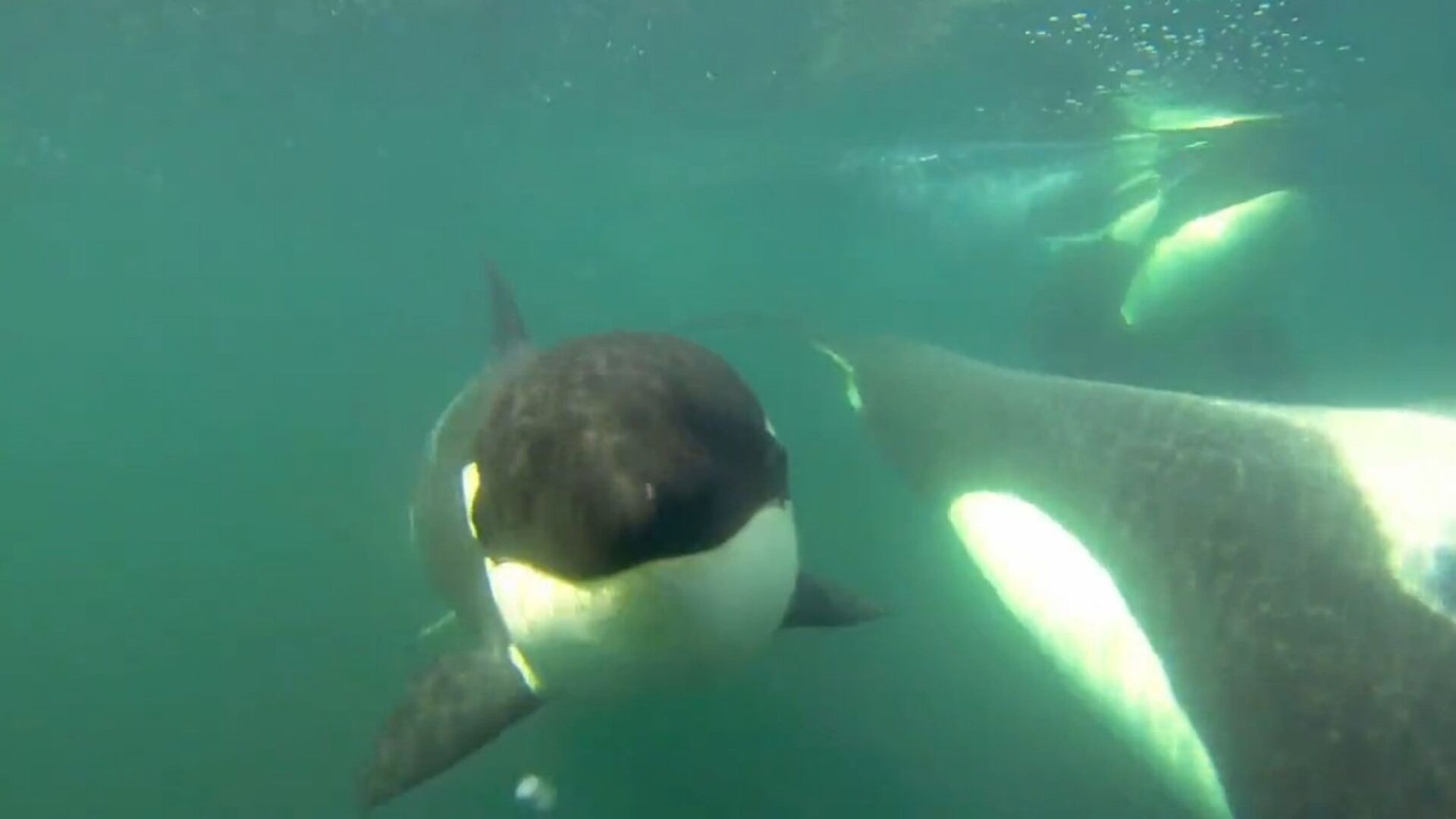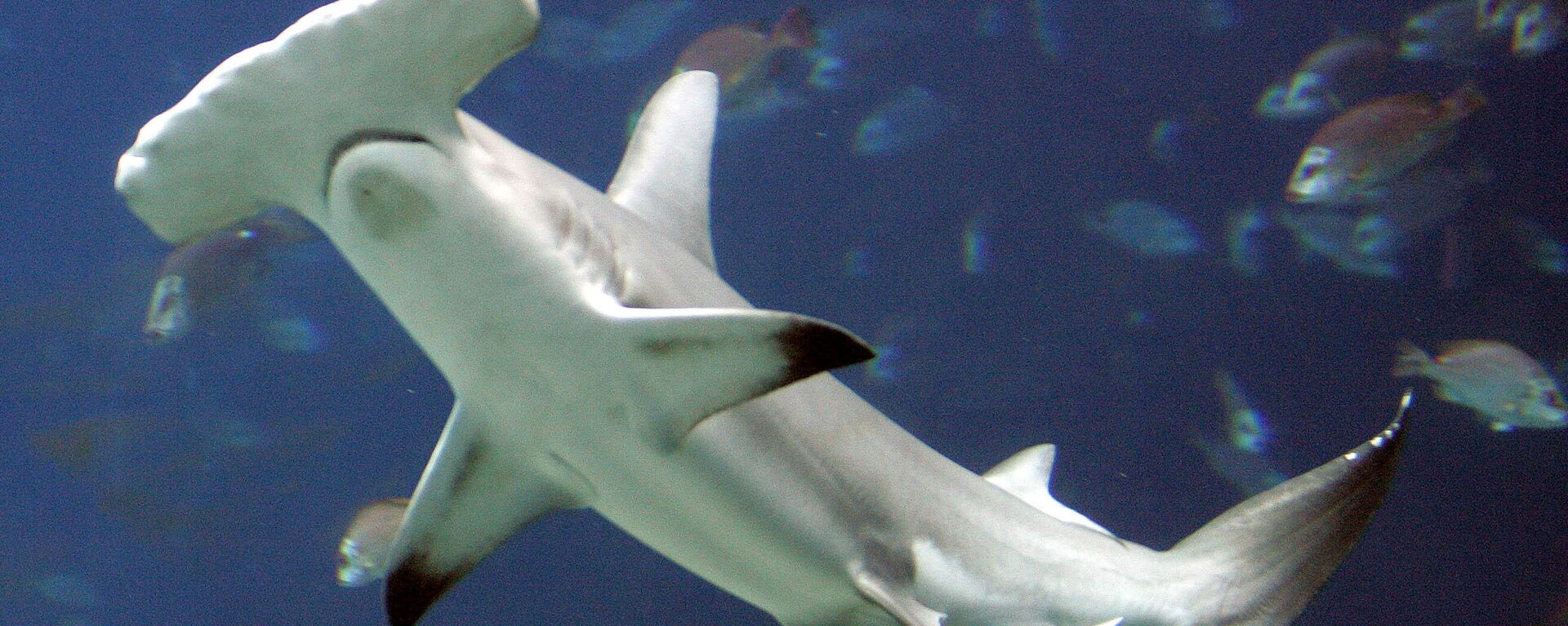https://sputnikglobe.com/20230617/increase-in-orcas-attacking-boats-one-incident-every-day-in-june-1111253362.html
Increase in Orcas Attacking Boats 'One Incident Every Day' in June
Increase in Orcas Attacking Boats 'One Incident Every Day' in June
Sputnik International
Recently the website orcas.pt began reporting a surge in encounters between orcas and boats off the coasts of Spain and Portugal, which prompted alarm among sailors and experts alike.
2023-06-17T21:18+0000
2023-06-17T21:18+0000
2023-06-17T21:22+0000
beyond politics
science & tech
spain
portugal
iberian peninsula
sea
orca
orca whales
orcas
https://cdn1.img.sputnikglobe.com/img/103922/39/1039223956_0:11:1396:796_1920x0_80_0_0_0bca6485c14dbd1dccee6f05dce35aed.jpg
According to Alves' data, there has been at least one encounter with killer whales every day in June, with a total of 10 attacks and 12 additional sightings reported since the beginning of the month. Some days have witnessed multiple attacks, such as four on June 3 and two on June 8. Alves hopes that by spreading awareness of these incidents, sailors will avoid areas with frequent orca activity, minimizing potential risks.The reasons behind the increased presence of orcas around boats remain unclear. One theory suggests that a traumatized orca named White Gladis may be influencing other killer whales to imitate her attacks on vessels. However, other experts propose that the orcas may simply be exhibiting playful behavior.While the motives behind these orca incidents remain a subject of study, experts caution against underestimating the power and capabilities of these magnificent creatures. Precautions should be taken to ensure personal safety, and it is essential to never enter the water with killer whales, since these apex predators, known for hunting great white sharks and even blue whales, definitely pose a significant threat.Recent reports describe several instances of boats being damaged or sunk during encounters with orcas. In one incident, a boat was rammed for over an hour, resulting in the removal of the rudder. Another yacht was struck repeatedly, leading to its complete sinking. Fortunately, no major injuries to humans have been reported so far.Efforts are underway to better understand these events, with Rui Alves' website providing a valuable platform for sailors to share information. By avoiding areas with frequent orca activity, sailors hope to reduce the risk of encounters and potential damage to their vessels.As investigations into the behavior of these orcas continue, sailors and researchers will remain vigilant in monitoring and documenting these encounters off the Iberian Peninsula.
https://sputnikglobe.com/20230616/potential-shark-extinction-risk-greater-than-ever-expected-study-finds-1111199991.html
spain
portugal
iberian peninsula
Sputnik International
feedback@sputniknews.com
+74956456601
MIA „Rossiya Segodnya“
2023
News
en_EN
Sputnik International
feedback@sputniknews.com
+74956456601
MIA „Rossiya Segodnya“
Sputnik International
feedback@sputniknews.com
+74956456601
MIA „Rossiya Segodnya“
spain, portugal, orcas, orca attack incident, are orcas dangerous, dangerous sea marine animals
spain, portugal, orcas, orca attack incident, are orcas dangerous, dangerous sea marine animals
Increase in Orcas Attacking Boats 'One Incident Every Day' in June
21:18 GMT 17.06.2023 (Updated: 21:22 GMT 17.06.2023) The website orcas.pt, created by Rui Alves, allows sailors to report sightings and attacks by orcas, providing a comprehensive map of the incidents. Recently, the website began reporting a surge in encounters between orcas and boats off the coasts of Spain and Portugal, which prompted alarm among sailors and experts alike.
According to Alves' data, there has been at least one encounter with killer whales every day in June, with a total of 10 attacks and 12 additional sightings reported since the beginning of the month. Some days have witnessed multiple attacks, such as four on June 3 and two on June 8. Alves hopes that by spreading awareness of these incidents, sailors will avoid areas with frequent orca activity, minimizing potential risks.
"We are having one incident every day, on average, OK? There are days we have two or three," Alves said in an interview with US media outlet.
The reasons behind the increased presence of orcas around boats remain unclear. One theory suggests that a traumatized orca named White Gladis may be influencing other killer whales to imitate her attacks on vessels. However, other experts propose that the orcas may simply be exhibiting playful behavior.
While the motives behind these orca incidents remain a subject of study, experts caution against underestimating the power and capabilities of these magnificent creatures. Precautions should be taken to ensure personal safety, and it is essential to never enter the water with killer whales, since these apex predators, known for hunting great white sharks and even blue whales, definitely pose a significant threat.
Recent reports describe several instances of boats being damaged or sunk during encounters with orcas. In one incident, a boat was rammed for over an hour, resulting in the removal of the rudder. Another yacht was struck repeatedly, leading to its complete sinking. Fortunately, no major injuries to humans have been reported so far.
"It was an idea. If you spread the word about something that happens in an area, people will avoid that area," said Alves. "Maybe they will keep the boat and say, 'I don't sail today because there are many orcas at that point. I will sail tomorrow, or maybe I will go in another direction.'"
Efforts are underway to better understand these events, with Rui Alves' website providing a valuable platform for sailors to share information. By avoiding areas with frequent orca activity, sailors hope to reduce the risk of encounters and potential damage to their vessels.
"It's just not something that we have seen, for whatever reason. They're the top predator in the ocean. They're capable of attacking and killing all kinds of species that are around them. But they have never targeted that talent or that predator-like behavior towards humans," said Monika Wieland Shields, President of the Orca Behavior Institute.
As investigations into the behavior of these orcas continue, sailors and researchers will remain vigilant in monitoring and documenting these encounters off the Iberian Peninsula.



